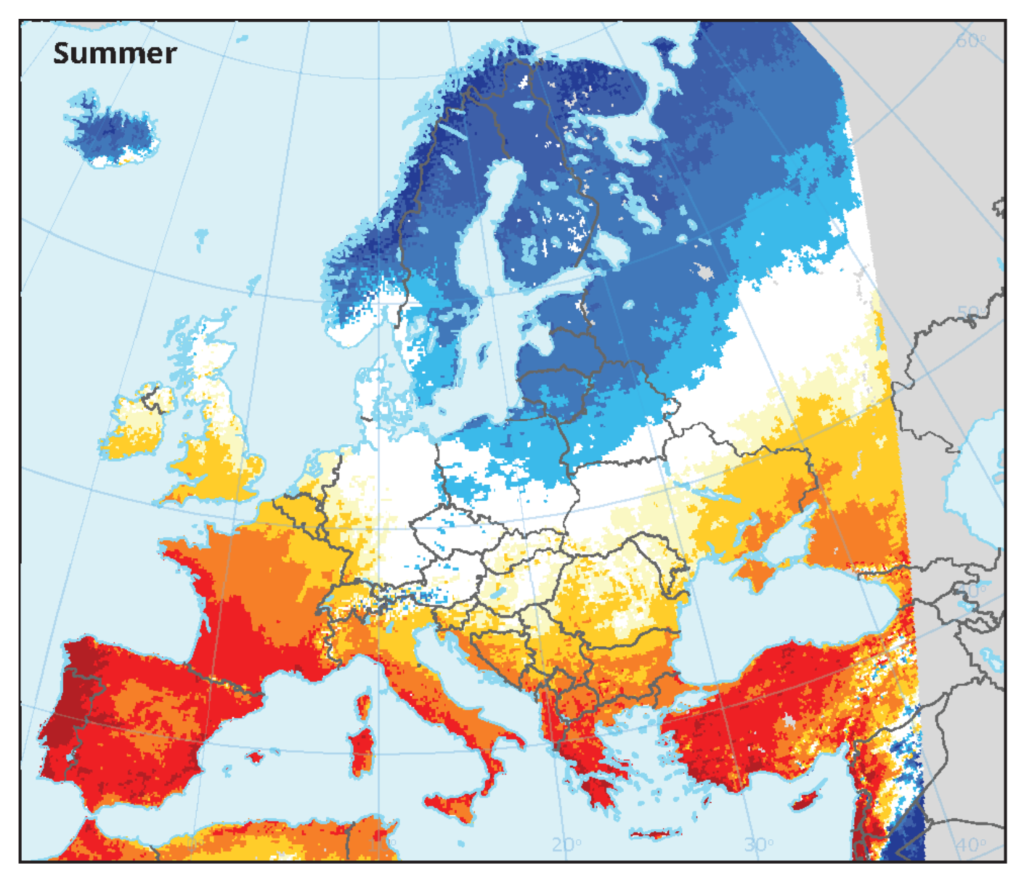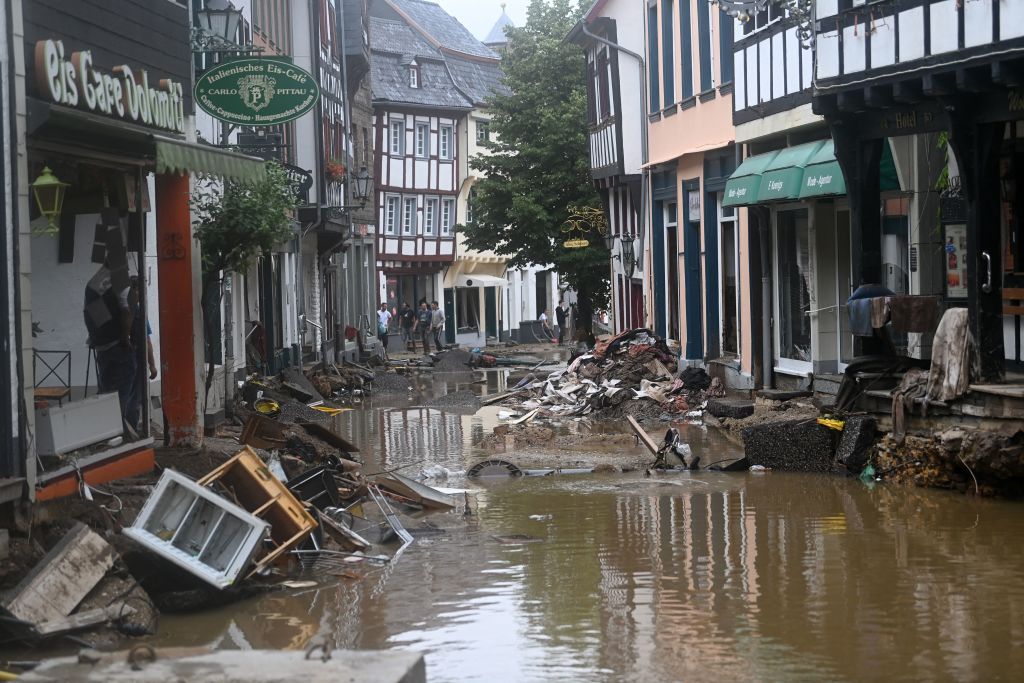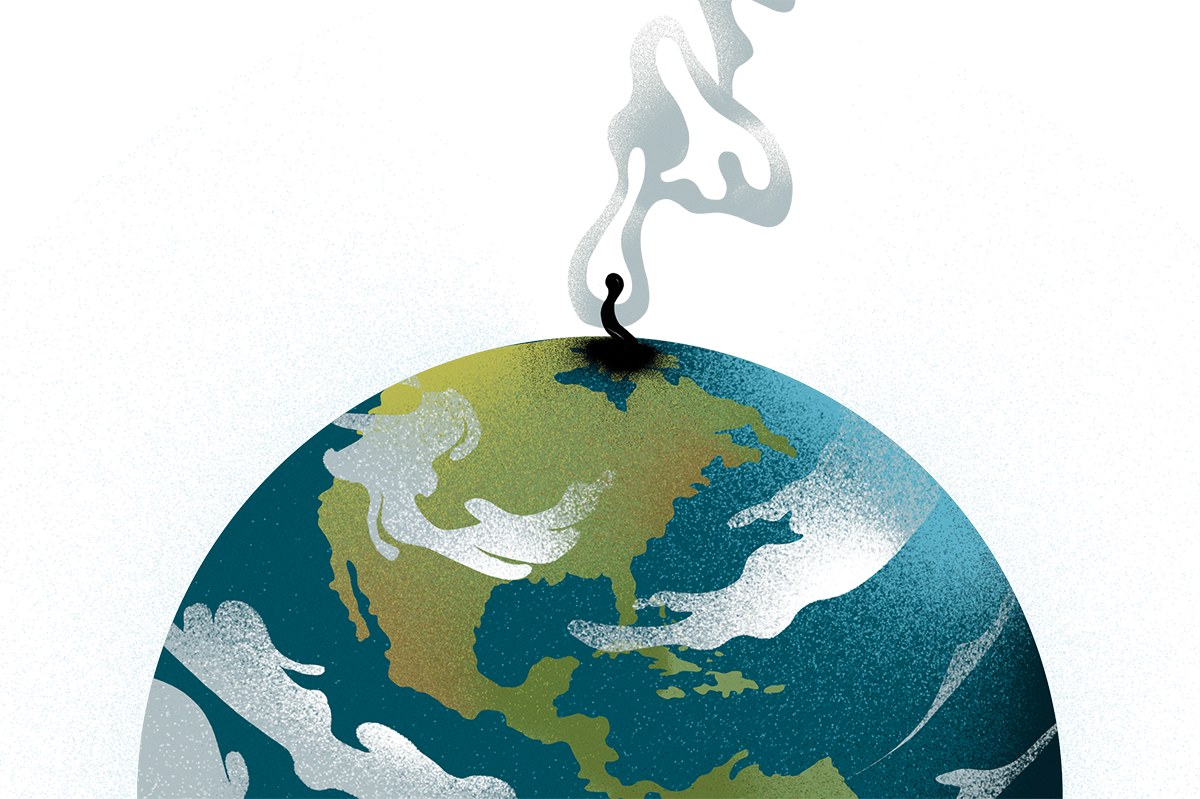Greta Thunberg has declared the floods in Germany, Belgium and the Netherlands to be the product of man-made climate change, adding ‘We’re at the very beginning of a climate and ecological emergency, and extreme weather events will only become more and more frequent.’
Well, that’s sorted out that one, then. We hardly need Angela Merkel or the prime minister of the Netherlands, Mark Rutte, to confirm it for us. Nor, indeed, do we need to hear from Michael Mann — aka Mr Hockey Stick — to tell us that the floods are the living embodiment of what climate scientists have been warning us about for decades. It was climate change wot flooded Germany and that is that — there is no reason for any further debate on the issue; indeed, even to suggest that there is a debate to be had is to mark yourself out as an evil ‘denialist’, intent on blinding yourself to deadly reality, and probably in the pay of on an oil company.
Except there is just one niggling little doubt at the back of my mind — and which perhaps ought to be leaping up and down in the minds of Greta and Chancellor Merkel, too. Far from predicting more summer rainfall in the German Rhineland, climate models have tended to do the opposite: to predict less. Had these floods occurred during the winter, it would have been reasonable to claim that they were consistent with climate projections. Had they occurred in Scandinavia or the Baltic states that, too, could have been claimed to be consistent with climate change projections. But as you can see from the below map put out by the European Environment Agency, the clear prediction for the Rhineland of southwestern Germany, as well as for Belgium and the southern Netherlands, is that summers will become drier. Indeed, when Germany did have a dry summer last year that, too, was put down to climate change.

Could Germany end up with summers which are generally drier but which nevertheless have more severe incidents of heavy rainfall? The two are not necessarily inconsistent — except that if you are going to have two months’ worth of rain in a few days, as happened in some places last week, that doesn’t leave a lot of rain for the rest of the summer.
There is an alternative explanation for last week’s floods: that they are mere weather. Weather, indeed, caused similarly devastating floods in nearby areas in 1954, leaving 10,000 Germans homeless.
A similar process happened with the 2007 floods in southern England. Initially, and lazily, they were attributed by government ministers to climate change — a very convenient thing to blame because, of course, it distracted attention from the failure to provide and maintain flood defenses, and from a disastrous planning policy which allowed new homes to be built on floodplains.
Yet when the Centre for Ecology and Hydrology looked into the 2007 floods it found it couldn’t attribute them to climate change. To have such large volumes of rainfall in the summer simply wasn’t consistent with models which predicted that southern England, like Germany, will see lower summer precipitation in future.
To lazily blame the German floods on climate change is a case of predicting one thing and then, when the opposite happens, to turn round and say ‘look, I told you so’. If you want to try to blame last week’s floods on climate change it is first necessary to argue that the models have been wrong all along — and that actually Germany will suffer greater summer precipitation. But then that might undermine climate models in general.
Alternatively, you can argue that the floods are a weather event which happened in spite of trends towards drier summers in Germany. Hysteria, I fear, has moved on a bit since 2008 when the Centre for Ecology and Hydrology delivered its report into the 2007 floods. I suspect that public bodies will be more reluctant now to point out what I have just done — and to risk being labelled ‘denialists’.
This article was originally published on The Spectator’s UK website.

























